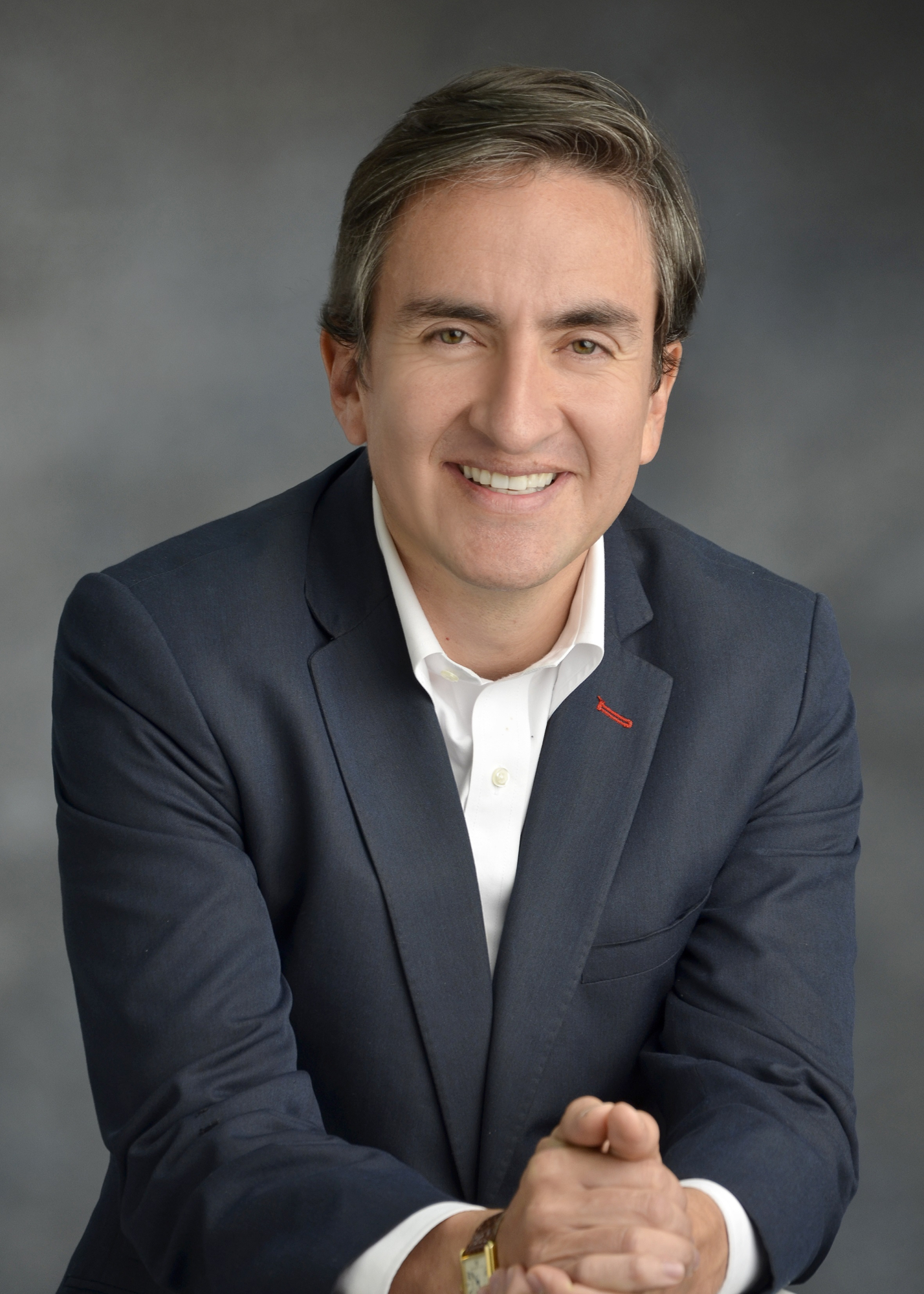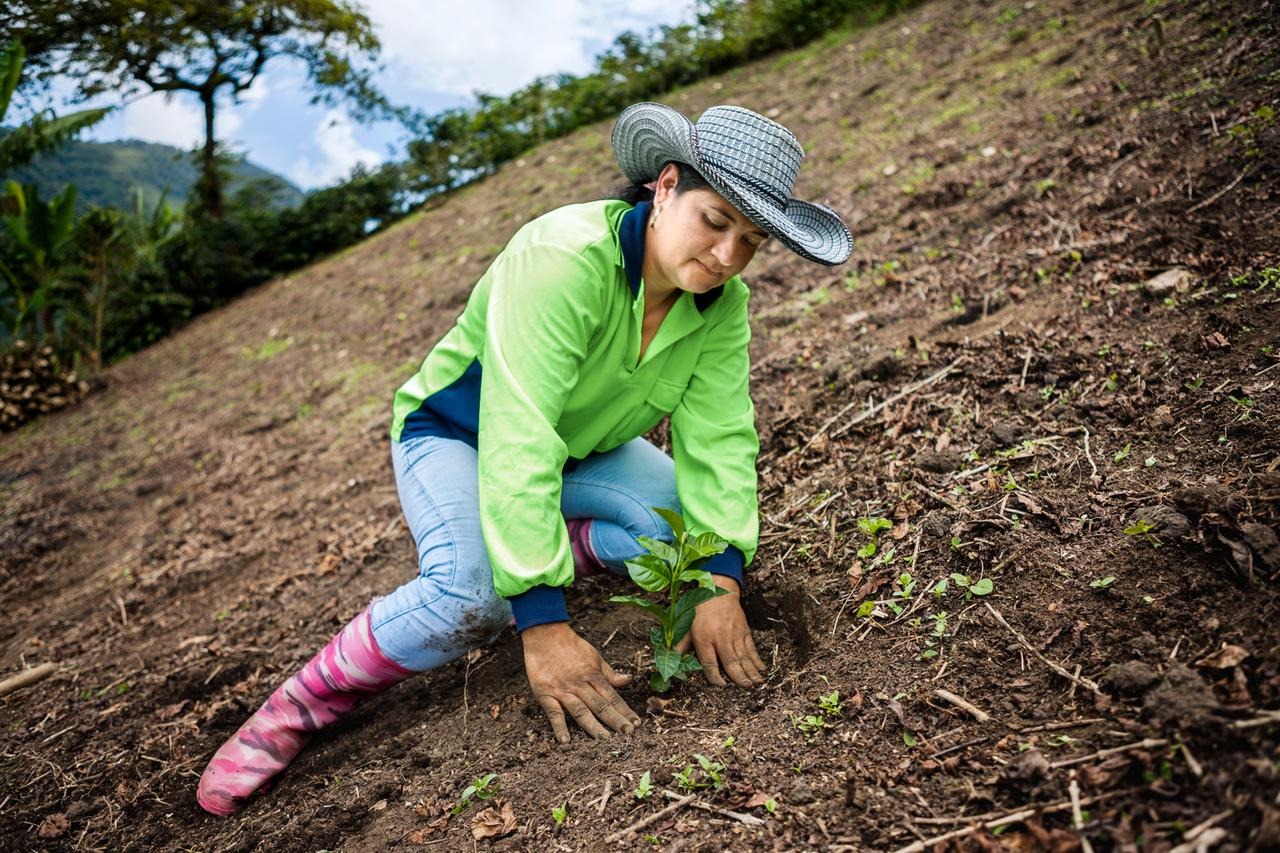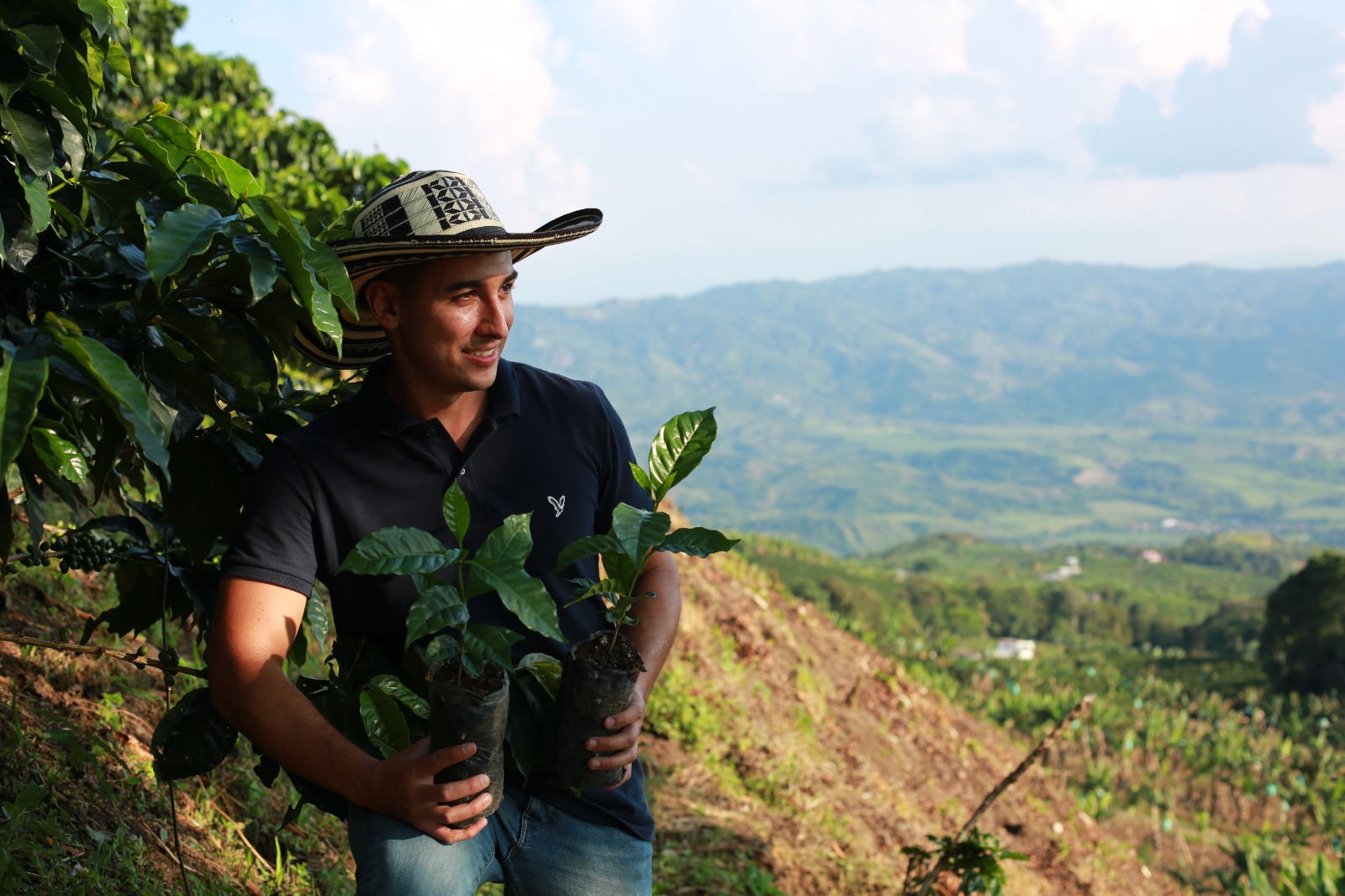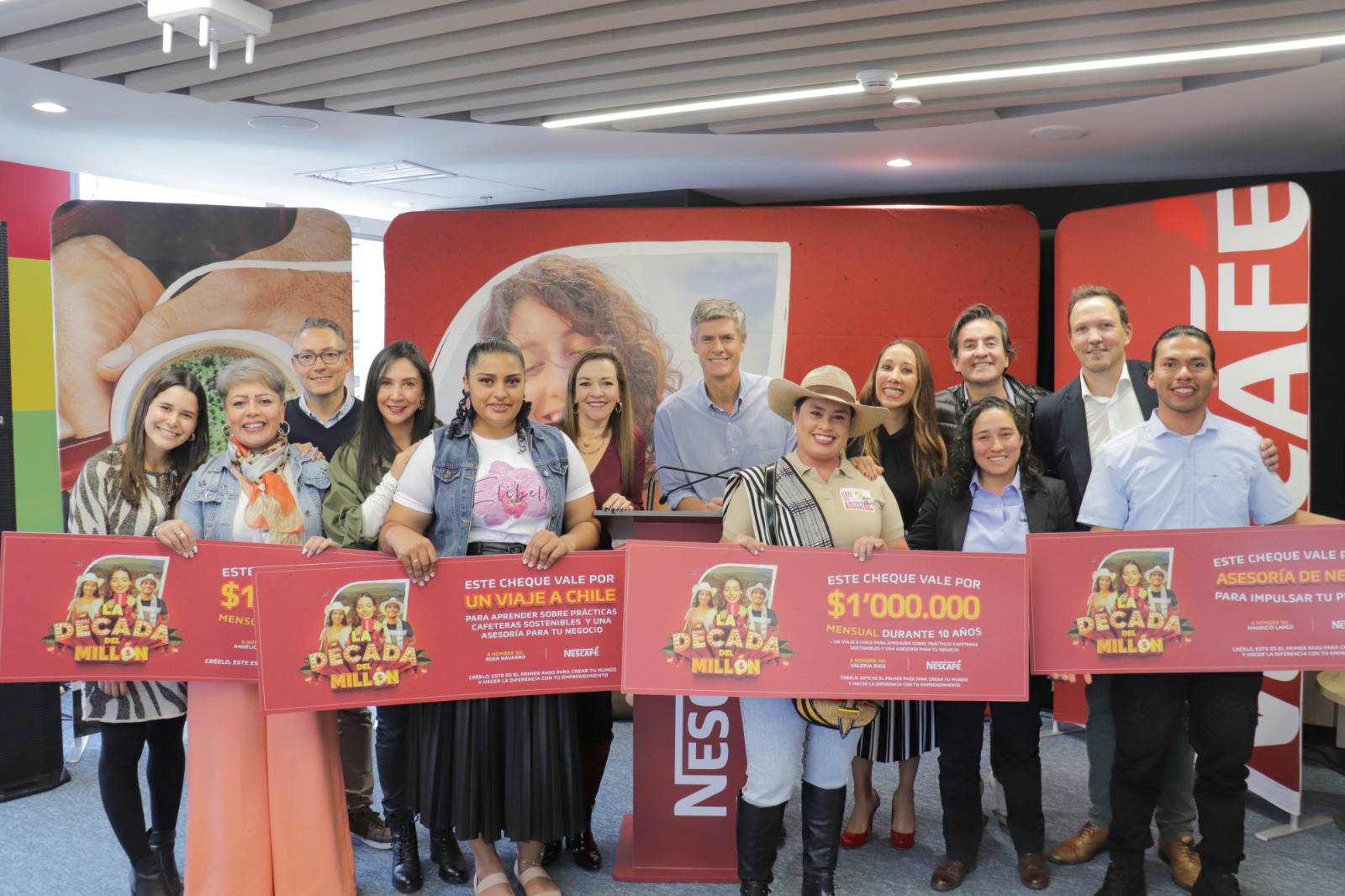'To be sustainable, companies must not only be profitable, but also useful to society': Carlos Barragán, Nestlé's director for Latin America

In the recent presentation of its 2024 Sustainability Report, Nestlé Colombia achieved an environmental milestone: since 2018, it has reduced and removed 43% of its greenhouse gas (GHG) emissions. This progress is significant on the path toward its global goal of achieving net-zero emissions by 2050 and reflects a profound transformation in the way the multinational company operates in the country.
Much of this result has been achieved thanks to the collaboration with its milk and coffee value chains, where it has promoted regenerative agriculture practices among its suppliers. Also notable is its participation in the Global Reforestation Program, which, in partnership with the National Federation of Coffee Growers, has allowed the planting of more than 2.8 million native trees in the departments of Antioquia, Risaralda, and Valle del Cauca.
“Achieving a 43% reduction in emissions is no coincidence. It's the result of years of work, rigorous measurement, and strategic decisions to transform our value chain,” says Carlos Barragán, Nestlé's Vice President of Corporate Affairs for Latin America.

Carlos Barragán, Nestlé's Vice President of Corporate Affairs for Latin America. Photo: Nestlé.
Barragán, who has closely led these initiatives, insists that sustainability should not be understood solely as an environmental goal, but as a principle of business competitiveness: today, it's not enough to be economically sustainable. Companies must also be useful to society. "That's the new standard by which consumers measure us," he points out.
In an interview with EL TIEMPO, Barragán explains how they achieved these advances, the real impact of regenerative agriculture in Colombia, why youth employability is part of their sustainability strategy, and how the company has also contributed to resolving community conflicts through dialogue.
What does Nestlé Colombia present in its new 2024 Sustainability Report? This report compiles years of work aligned with our global goal of achieving net-zero emissions by 2050. Since 2018, we have achieved a 43% reduction in our greenhouse gas emissions. We did this with verifiable data and on several fronts: regenerative agriculture, reforestation, responsible milk sourcing, and changes in logistics and production processes.
How did they achieve this 43% reduction in emissions? What role did regenerative agriculture play? First, we measured our global carbon footprint and discovered that a large portion of our emissions came from raw materials like milk and coffee. That's why we worked directly with ranchers and farmers to implement regenerative agriculture practices, which involve restoring the land's natural balance: reforesting with native trees, restoring ecosystems, and promoting biodiversity.
In addition, we use silvopastoral systems that not only improve soil and water health, but also improve animal welfare and increase productivity. This has a direct impact on food quality and producers' incomes. We even launched a regenerative agriculture manual for coffee and sugarcane with CIAT and The Nature Conservancy.

Nestlé has achieved a 43% reduction and removal of its emissions since 2018. Photo: Nestlé
We're already above 90% in coffee, and we hope to meet that goal of 100% in all categories this year. This means that all of these ingredients will come from responsible practices, which benefit both the environment and the producing communities. In milk, for example, 75% already comes from farmers who practice regenerative agriculture.
We work with more than 2,500 farmers who receive technical assistance and bonuses for their commitment. At the same time, we continue to make progress in planting 7.5 million trees, of which we have already planted 2.8 million. We do all of this in partnership with the National Federation of Coffee Growers and more than 1,800 coffee growers.
What has been the impact of this reforestation program in Antioquia, Risaralda, and Valle del Cauca? In these areas, we have planted native trees on coffee farms as part of Nestlé's global reforestation program and the Nescafé Plan. In addition to plants, we offer technical assistance and have actively involved young people in these initiatives. We also promote education on good agricultural practices from childhood, so that new generations recognize the value of regenerative agriculture.

Nestlé expects to plant 7.5 million trees in the coming years. Photo: Nestlé
Because we don't believe young people are the future: they are the present. Since 2014, we have had a global strategy called the 'Youth Initiative,' with three pillars: employability, agribusiness, and entrepreneurship. By 2024, we will benefit more than 38,000 young people in Colombia with programs such as JNutri, JPedia, YOCUTA, Young Baristas, and Young Veterinarians. More than 5,300 young people have trained with us.
We held an employment fair with more than 33,000 attendees and offer opportunities in partnership with SENA and other institutions. We also participated in the Pacific Alliance, where we offered more than 6,000 vacancies in Colombia, Chile, Peru, and Mexico.

More than 38,000 young people benefited in 2024 through training and employability programs. Photo: Nestlé
Because today, companies must not only be profitable, but also useful to society. Previously, the goal was to maximize profits; today, consumers expect brands to have a purpose. While many people are still unwilling to pay more for sustainable products, they do prefer brands with a social and environmental commitment.
That's our competitive advantage. We want everyone who sees a Nestlé product on the shelf to know that it's based on responsible practices, strengthened communities, and respect for the planet.
He also spoke to me about the human rights approach… Yes. We're sometimes asked why a company like Nestlé, which isn't part of the extractive sector, works on human rights issues. We do so because we're directly or indirectly affected by what happens in the regions where we operate. This is called "double materiality."
That's why we launched a partnership with the Ministry of Justice to promote equitable conciliation. In 2024 alone, we resolved more than 320 conflicts in Bugalagrande, Tuluá, and Andalucía (Valle del Cauca), contributing to more peaceful communities. This is also sustainability: caring for life, promoting dialogue, and building social fabric.
Environment and Health Journalist
eltiempo





